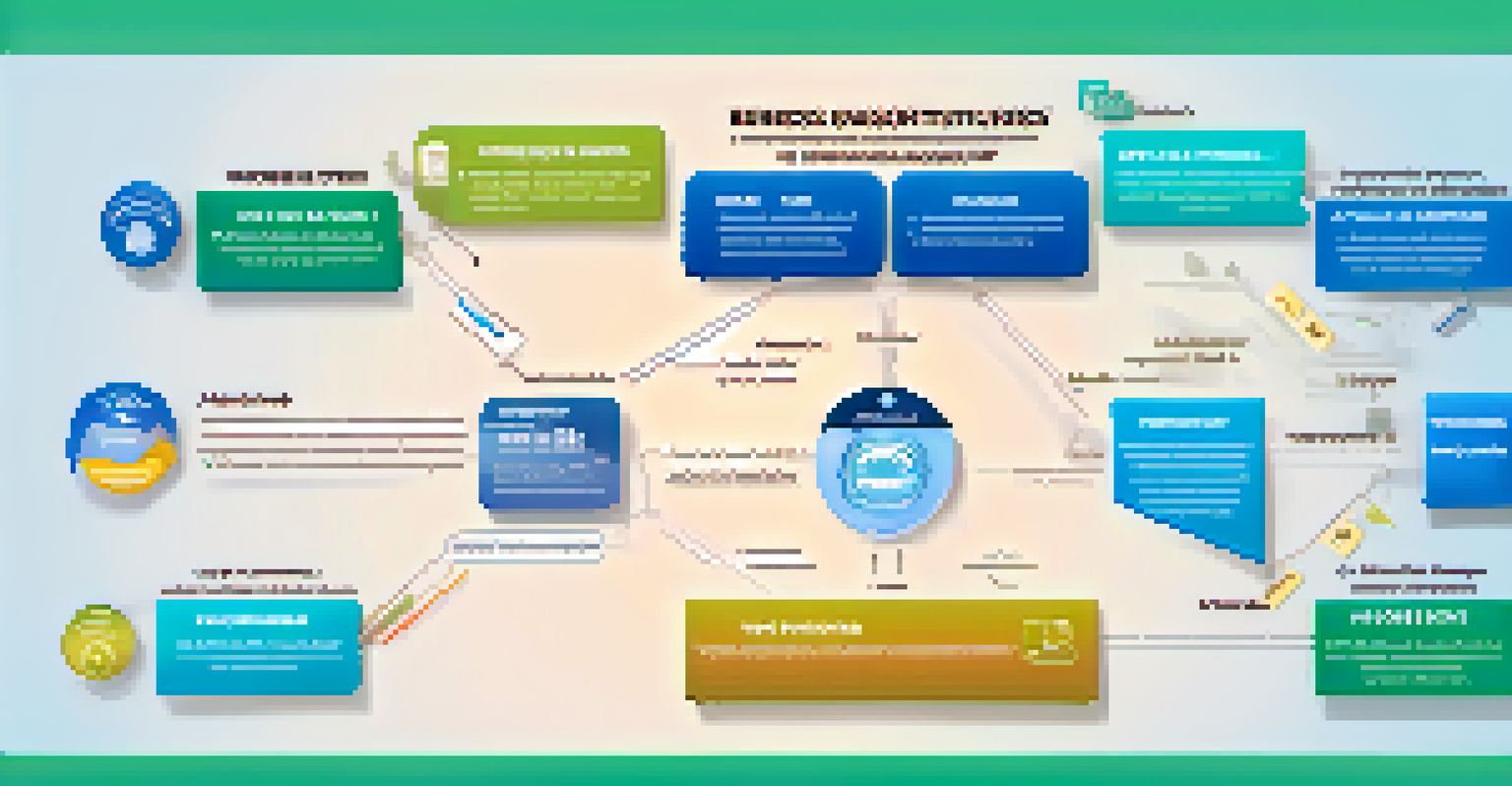Navigating the Complex Tax Landscape for New Entrepreneurs

Understanding Your Business Structure and Taxes
Choosing the right business structure is crucial for tax purposes. Whether you opt for a sole proprietorship, LLC, or corporation, each has different implications on how you file taxes. For instance, an LLC can provide personal liability protection while allowing for pass-through taxation, which means profits are taxed on your personal return.
The hardest thing about being an entrepreneur is that you’ll never know what you’re doing, and the second hardest thing is that you’ll always have to figure it out.
It's essential to weigh the pros and cons of each structure. A corporation may offer tax advantages but comes with more regulations and paperwork. On the other hand, a sole proprietorship is simpler but could expose you to personal liability.
In essence, your choice of business structure will shape your tax responsibilities, affecting everything from how much you pay to what forms you file. Consulting with a tax professional can provide clarity tailored to your situation.
Identifying Your Tax Obligations
As a new entrepreneur, understanding your tax obligations can feel overwhelming. You'll need to familiarize yourself with federal, state, and sometimes even local taxes. This includes income tax, self-employment tax, and possibly sales tax if you sell goods or services.

Additionally, you may have payroll taxes if you hire employees, which can add another layer of complexity. Each type of tax has its own filing deadlines and requirements, making it crucial to stay organized.
Choose Your Business Structure Wisely
The type of business structure you choose affects your tax responsibilities and personal liability.
Recognizing these obligations early on can help you avoid penalties and ensure that you're compliant with tax laws. Keeping thorough records from day one can make this process much easier.
Deductible Business Expenses: What You Should Know
One of the perks of being an entrepreneur is the ability to deduct many business-related expenses on your taxes. This can include costs like office supplies, equipment, travel, and even a portion of your home if you work from there. Keeping track of these expenses can significantly reduce your taxable income.
The tax code is a complicated system, but it is also a system that offers opportunities for those who take the time to understand it.
However, it's essential to distinguish between personal and business expenses. For example, while a new laptop might be deductible, your personal vacation is not. Understanding what qualifies as a deductible expense can save you money come tax season.
To make the most of your deductions, maintain detailed records and receipts. Using accounting software can simplify this task and help you stay organized.
Estimated Taxes: Planning Ahead
As a self-employed individual, you are responsible for paying estimated taxes throughout the year. This means you'll need to estimate your income and pay taxes quarterly instead of waiting until the end of the year. This can be a significant shift for new entrepreneurs used to regular paycheck withholding.
Calculating your estimated taxes involves looking at your expected income and expenses. It’s often helpful to create a budget to project your earnings and expenses accurately. This way, you can avoid unexpected tax bills and penalties.
Understand Your Tax Obligations
Familiarizing yourself with various tax obligations early can help avoid penalties and ensure compliance.
Setting aside funds regularly for these payments can help you manage cash flow and ensure you’re prepared when tax deadlines arrive. It's a proactive step that can ease financial stress later on.
Navigating Tax Software vs. Hiring a Professional
When tax season rolls around, new entrepreneurs often face the decision of whether to use tax software or hire a professional. Tax software can be a more cost-effective option, providing step-by-step guidance for filing your taxes. Many programs are user-friendly, making it easier for those with basic tax knowledge.
However, if your tax situation is complex—like if you have multiple income streams or a significant amount of deductions—it might be wise to consult a tax professional. They can offer personalized advice, ensure compliance, and identify potential savings you may have overlooked.
Ultimately, the choice depends on your comfort level with taxes and your specific business needs. Weighing the costs and benefits of each option will help you make an informed decision.
Staying Updated with Tax Laws and Regulations
Tax laws and regulations are constantly changing, and keeping up with these updates is vital for any entrepreneur. New tax credits or deductions can emerge, while others might be phased out. Staying informed can help you take advantage of opportunities that could benefit your business financially.
One effective way to stay updated is by following reputable financial news sources or subscribing to tax-related newsletters. Additionally, engaging with local business groups can provide insights from fellow entrepreneurs who may share valuable information.
Plan for Estimated Taxes
Self-employed individuals must pay estimated taxes quarterly, making careful income and expense planning essential.
Remember, ignorance is not bliss when it comes to taxes. Being proactive about learning can save you money and help you avoid pitfalls.
Planning for Future Growth and Tax Implications
As your business grows, so will your tax obligations. It's essential to plan for future growth and how it will affect your tax situation. For instance, if you anticipate hiring employees or expanding your product line, you may need to adjust your tax strategies accordingly.
Consider setting aside funds for potential tax liabilities as your revenue increases. This forward-thinking approach can prevent financial strain when tax time arrives and allow you to reinvest in your business.

Moreover, having a long-term tax strategy can help you make informed decisions about your business. Consulting with a tax advisor regularly can ensure you're on the right path as you scale.